
By Alex Epstein
With Hurricane Ian, the media have once again put forward the narrative that fossil fuels make extreme weather danger worse—and that fossil fuel supporters like Governor Ron Desantis are to blame.
Nothing could be further from the truth.
- Myth 1: The world is experiencing unprecedented danger from extreme weather thanks to fossil fuels.Truth: The world is experiencing unprecedented safety from extreme weather thanks to fossil fuels—because fossil fuels’ climate mastery benefits overwhelm any negative climate side-effects.¹
- Myth 2: The media and its designated experts are accurately reporting on fossil fuels and extreme weather.Truth: The media and its “experts” are:
1. totally ignoring how fossil fuels make us safer than ever from extreme weather
2. wildly overstating fossil fuels’ negative impact on weather. - Myth 3: The effect of fossil fuels on extreme weather danger is solely negative.Truth: Not only can warming from fossil fuels have significant benefits (fewer cold deaths) but the low-cost energy fossil fuels provide for billions gives us an unprecedented ability to master extreme weather.
- Fossil fuels have made us far safer from extreme weather by providing low-cost energy for the amazing machines that protect us against storms, protect us against extreme temperatures, and alleviate drought. Deaths from extreme weather have decreased 98% over the last century!²
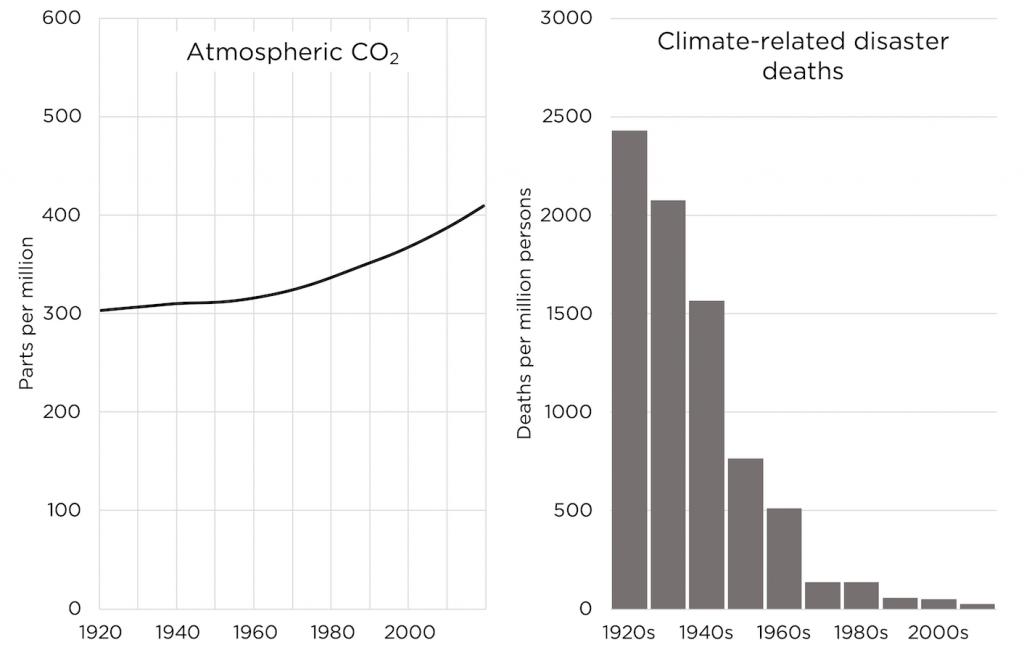
- Myth 4: We don’t need fossil fuels to protect ourselves from extreme weather—we can just use alternatives.Truth: As Europe is illustrating, there is no near-term replacement for fossil fuels for the 1/4 of the world that uses abundant energy—let alone the 3/4 of the world that doesn’t.³
- Fossil fuels will for decades remain uniquely able to provide low-cost, reliable energy to billions. That’s why fossil fuels are 80% of world energy and still growing.Restricting fossil fuel use means far less energy for climate mastery activities such as heating, cooling, and irrigation.⁴
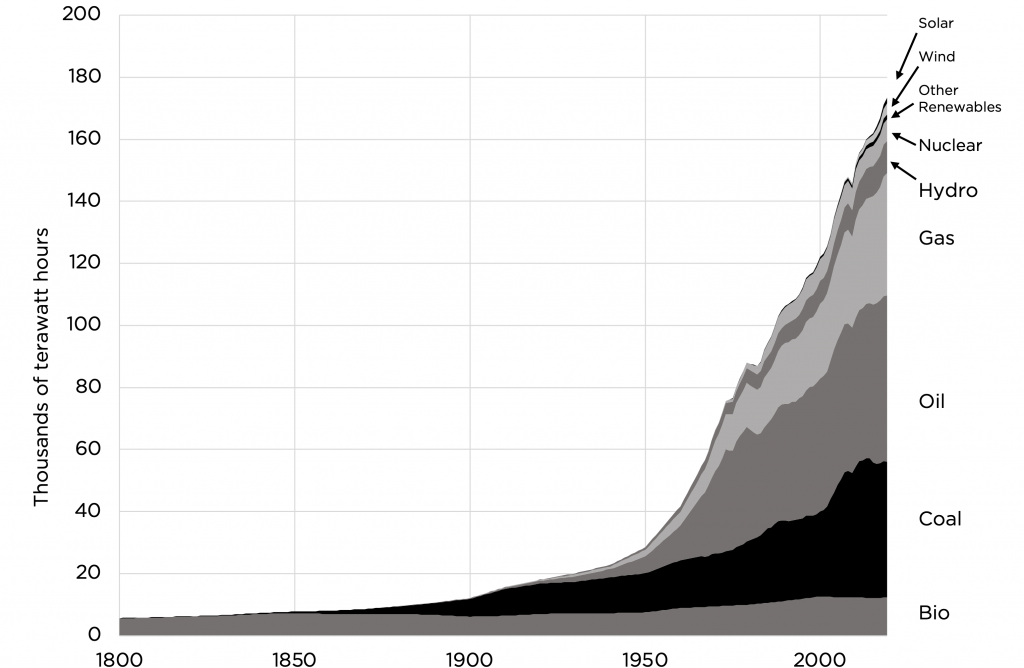
- Myth 5: The media and its designated experts are accurately reporting the scientific linking of fossil fuel use and hurricanes.Truth: This “reporting” is riddled with
1. deliberate misrepresentations (e.g., hurricane frequency)
2. biases (e.g., only reporting negative links) - Myth 6: Media claims about increasing hurricane frequency are accurate.Truth: Leading media outlets have deliberately misrepresented the flat long-term hurricane trend. E.g., the New York times cherry-picking a starting point—the low point of 1980—to make a flat trend seem upward.⁵
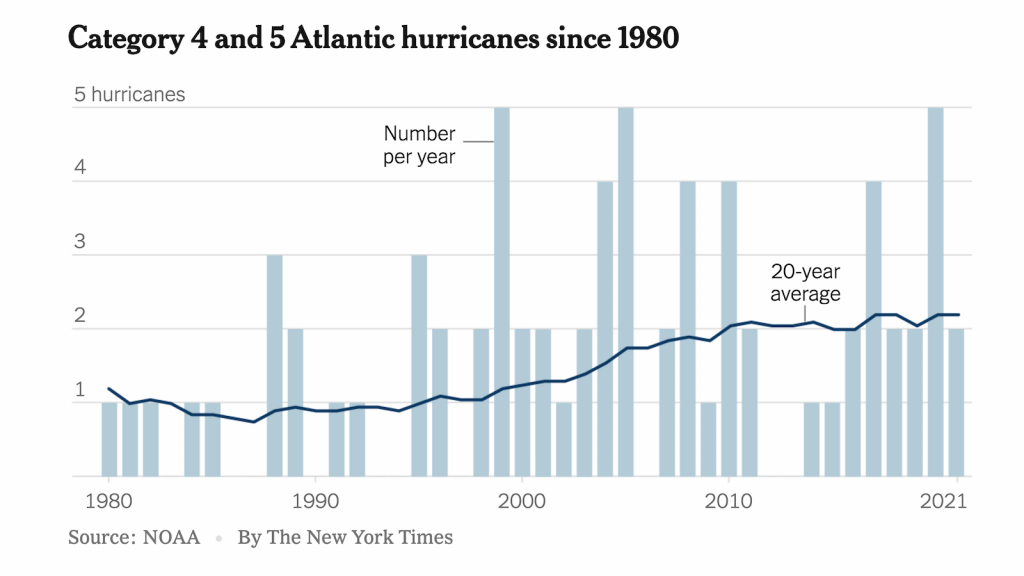
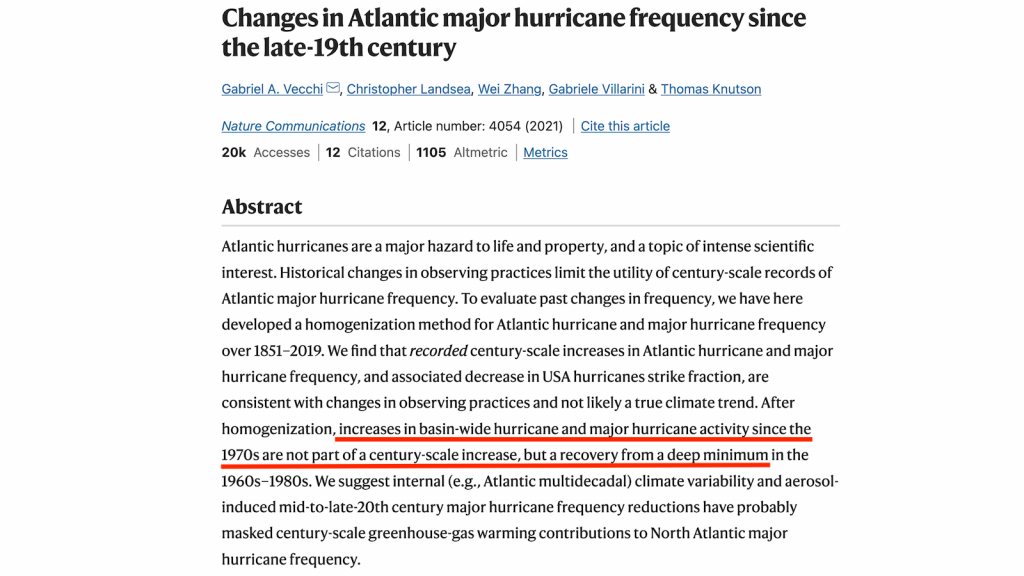
- Leading media outlets have also deliberately ignored statements by the National Oceanographic and Atmospheric Administration and the Intergovernmental Panel on Climate Change about how any increases in hurricane frequency in records are likely due to increasing reporting, not actual frequency.⁶
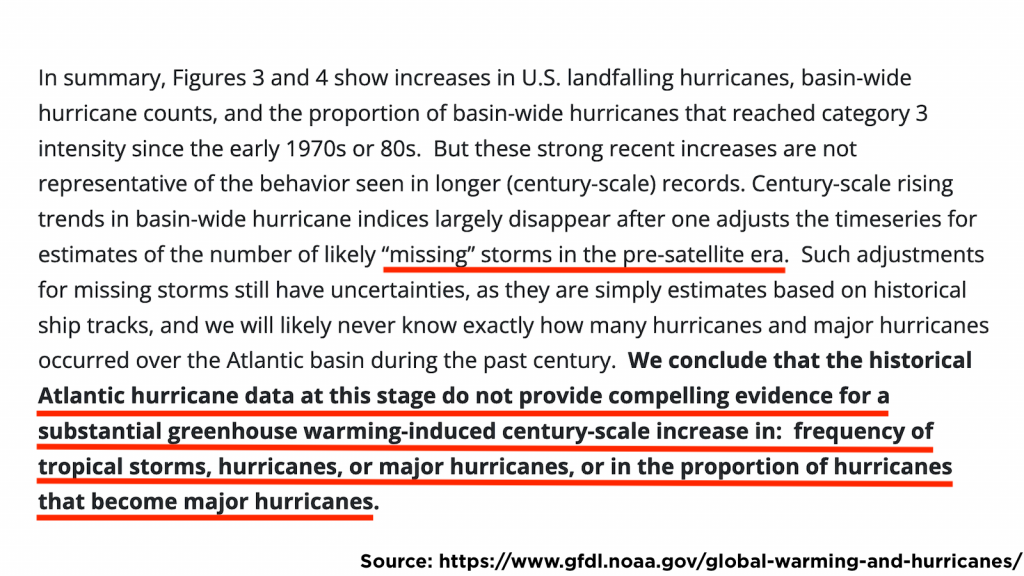
- Here are the latest data on global hurricane frequency and intensity from a 2022 paper (Klotzbach et al). Does this remotely resemble what trusted media sources tell you?⁷
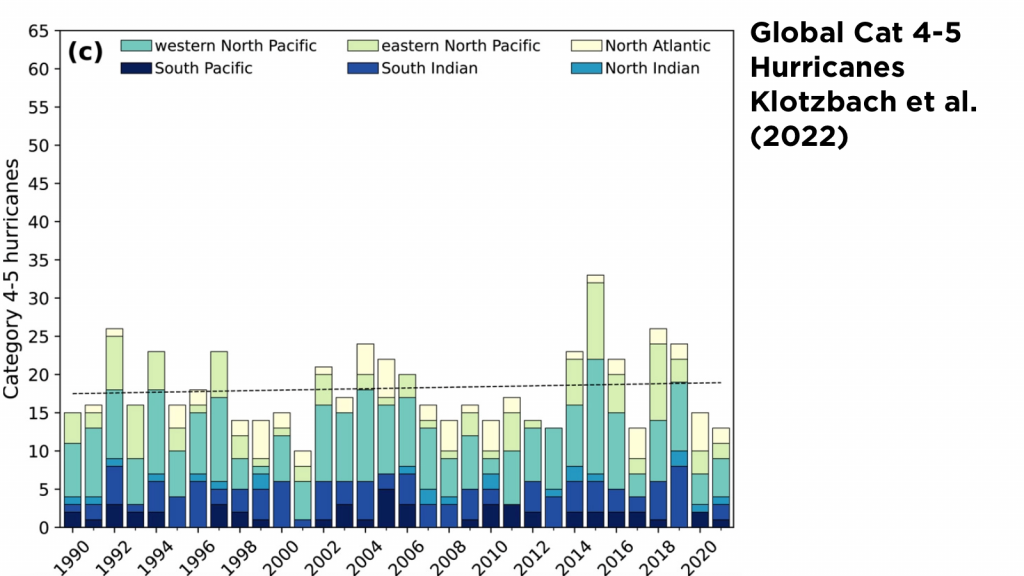
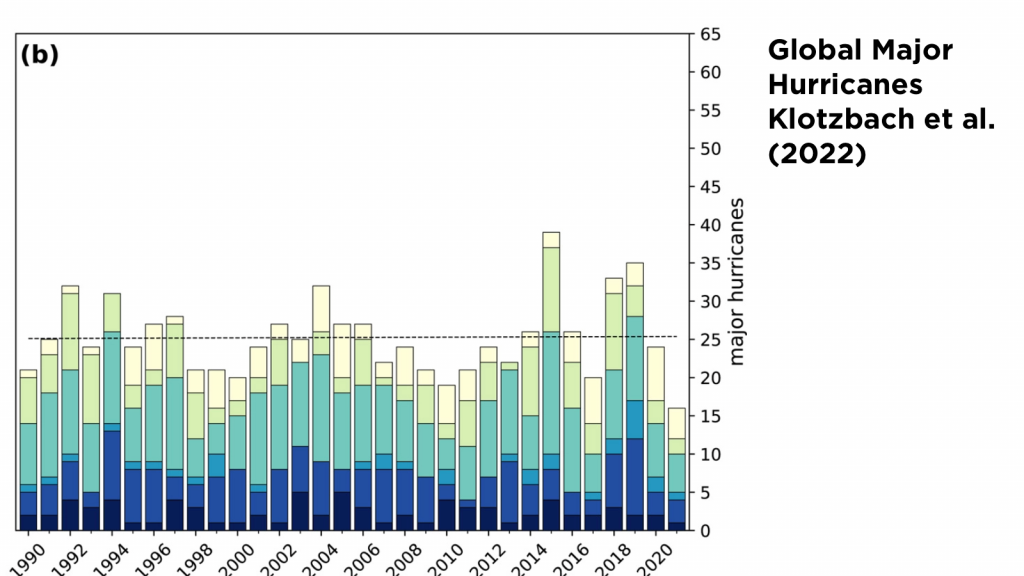
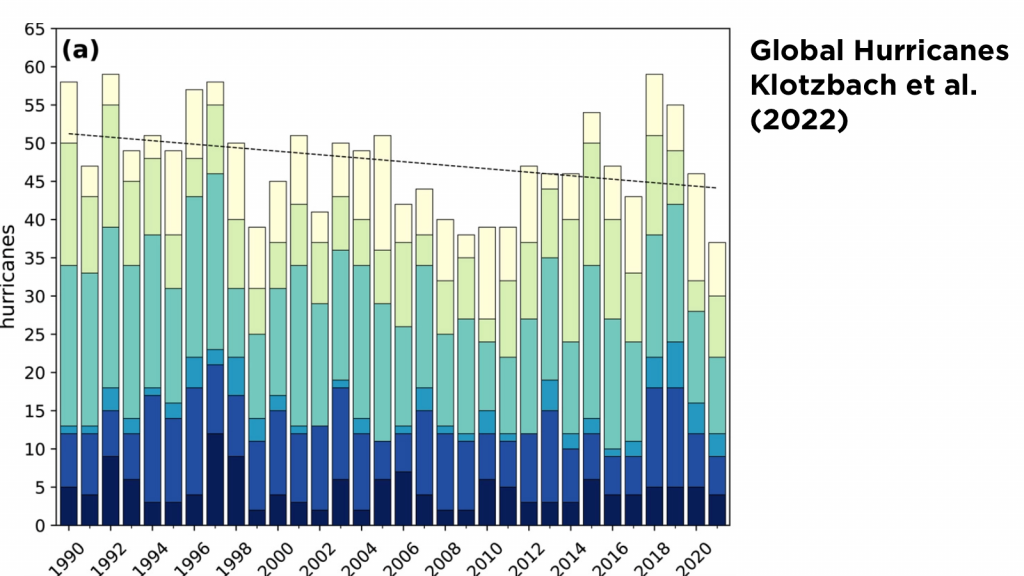
- Here’s recent US data for landfalling hurricanes, both overall and major. Again, consuming the New York Times and other trusted sources would you have any idea that the data looked like this?⁸
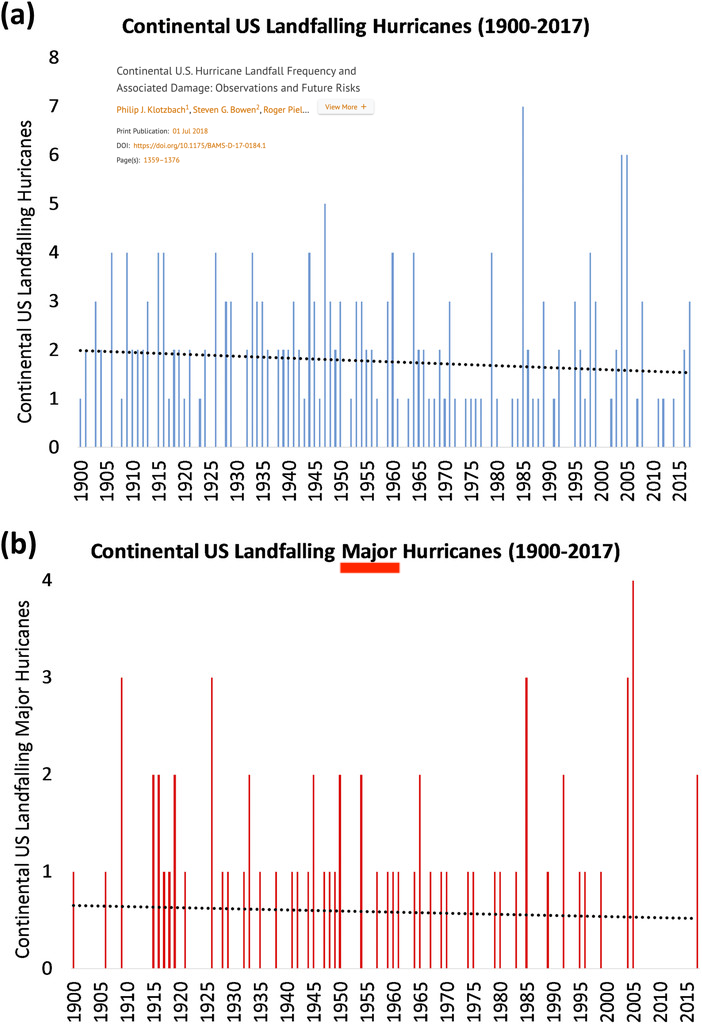
- Myth 7: Hurricanes are expected to get more frequent as temperatures rise.Truth: Mainstream science expects that hurricanes will become less frequent as temperatures rise.⁹
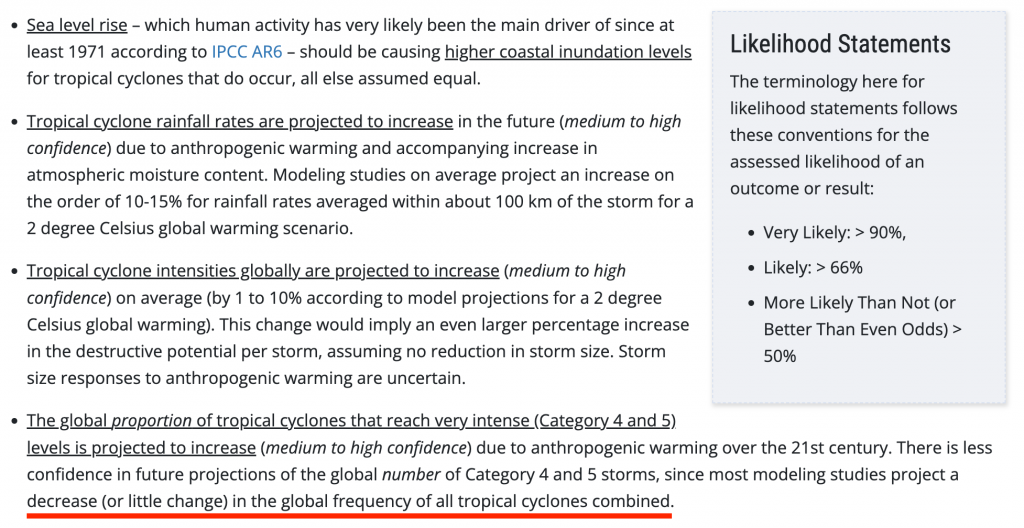
- Myth 8: Hurricane intensity is expected to get catastrophically higher as temperatures rise.Truth: Mainstream estimates say hurricanes will be less frequent and between 1-10% more intense. This is not at all catastrophic if we continue our fossil-fueled climate mastery.¹⁰
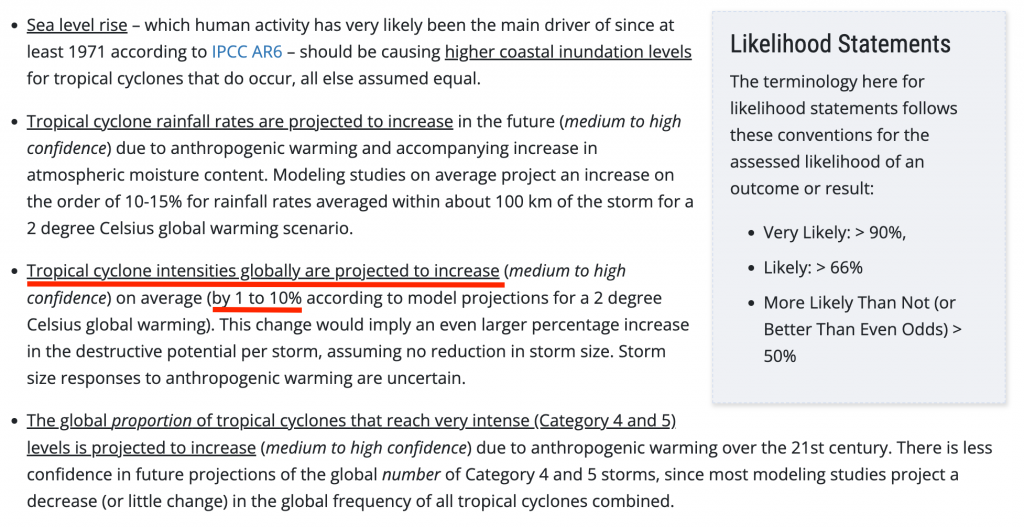
- Myth 9: Media-cited research on extreme weather is unbiased.Truth: Extreme weather research is riddled with biases. In addition to ignoring fossil-fueled climate mastery, many researchers have overtly political motives and ignore positive impacts of fossil fuels on weather.
- Myth 10: Climate researchers have no political bias.Truth: Certain climate attribution “scientists” admit that they are motivated by political goals and shape their “science” accordingly. E.g., media favorite Friederike Otto wants climate research “on the offensive.”¹¹
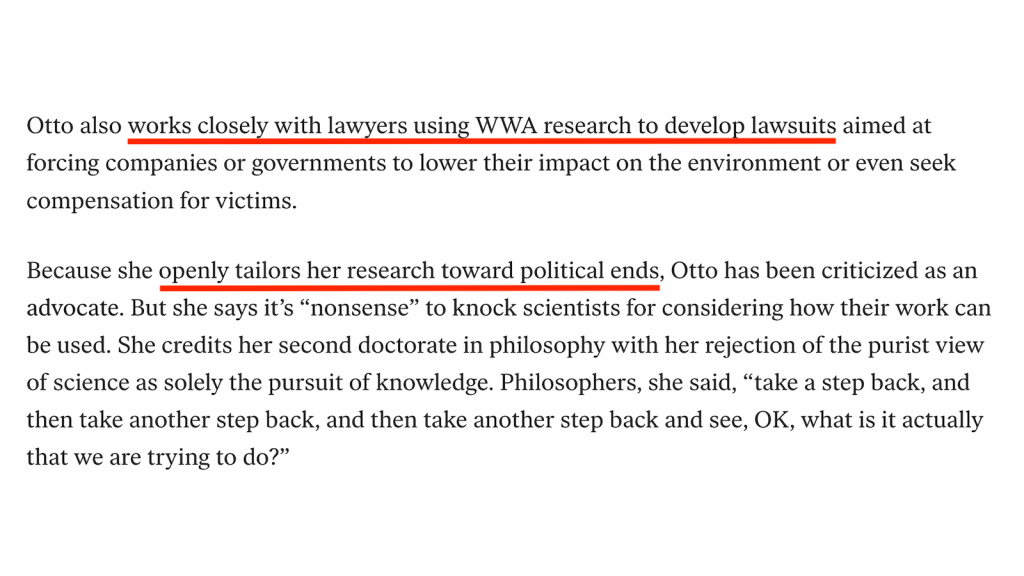
- Myth 11: Extreme weather “attribution” researchers are simply trying to understand extreme weather and have found fossil fuels guilty.Truth: Extreme weather “attribution” only looks for negative impacts of fossil fuels on extreme weather, brazenly ignoring any avoided negative impacts.
- One of the few climate researchers who is openly looking at the full impact of fossil-fueled climate change, including potential avoided damage, is meteorologist and hurricane expert Dr. Ryan Maue. What are the chances we see his point about avoided hurricanes in the mainstream news?



